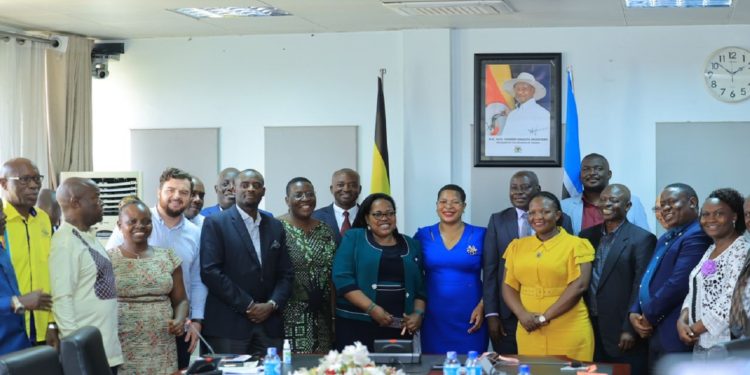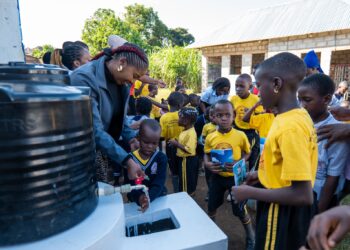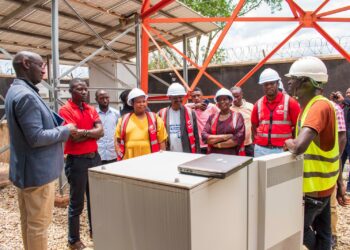Speaker Anita Among has challenged stakeholders to stop lamenting on hygiene-related matters and take proactive interventions to promote proper sanitation in the country.
Among said access to clean water, adequate sanitation and proper hygiene should be prioritised because it is not only a basic human right but also serves as a foundation for the health, dignity and development of communities.
She was speaking at a roundtable meeting with the members of the Parliamentary Forum on Water, Sanitation and Hygiene (WASH) and other development partners in her boardroom on Friday, 04 October 2024.
“We need to ensure we have access to clean water, proper sanitation and hygiene because we can only achieve soci0-economic development when we have a healthy population,” Among said.
Dr. Herbert Nabaasa, Commissioner Health Services and Environmental Health at the Ministry of Health said the country is grappling with the disease burden due to inaction to preventive measures as nearly 75 per cent of diseases are preventable.
“For every 100 people who seek healthcare in hospitals, 75 of them are not supposed to be there; they are there because of lack of action. We need to address the requirements to change the current landscape in terms of planning, prioritising and budgeting,” Nabaasa said.
Nabaasa said the WASH sector budget oscillates at less than three per cent of the national budget yet Uganda is becoming a hotspot for diseases.
“Uganda is becoming a hotspot for diseases like Ebola, Covid-19, Cholera, Monkeypox, etc. All these diseases are related to WASH. But how much attention are we giving to issues of sanitation and water?” he said.
Ismael Mulindwa, the Director of Basic and Secondary Education at the Ministry of Education and Sports said access to clean water and sanitation is still a big challenge for about 14 million learners in schools, with at least 71 learners converging at one point to answer the call of nature.
“We are worried that we are being invaded by many health issues and when it meets such conditions then it could get worse. Only 53 per cent of the schools have safe drinking water. This is a serious issue as far as the health condition of learners is concerned,” Mulindwa said adding that the capitation grant given to schools is insufficient to address issues of water and sanitation.
“We seek your support to amplify our request. We need to increase capitation grant to address issues of WASH,” he said.
The Parliamentary Forum on WASH was set up in 2012 to respond to water, sanitation and hygiene issues in the country following a recommendation by Water Aid Uganda in 2012.
The Chairperson of the Forum, Hon. Silas Aogon said the roundtable dialogue with the Speaker is a buildup to the upcoming Presidential Dialogue on WASH and the Global Handwashing Day celebrations 2024.







Discussion about this post